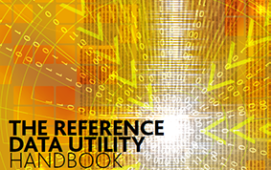Oracle last week finally completed its $7.4 billion acquisition of Sun Microsystems, and the company wasted no time in setting out its road map for how its software and Sun’s hardware (and some software) are going to be packaged together so that the sum is greater than the two parts.
A surprise – kinda – is that it looks like Oracle is going to do just about all of the things it said it was going to do when it announced the acquistion way back in April 2009. (Most of the months in between were taken up by regulatory approvals, mostly in the EU where concerns over the future of the open source MySQL database significantly delayed the process).
Oracle plans to keep – and says it will invest in – both the x86 and SPARC-based servers that Sun builds, as well as the Solaris operating system and the Java platform. It is likely to get out of the low-end x86 business, which companies like Dell own, and it’s unclear what it will do about Sun’s scientific computing initiatives, since it has a more of a business focus.
What it does plan to do is to create complete solution stacks – server hardware, storage, operating system, middleware, database – for various business segments. The previously announced Sun Oracle Database Machine is an early example. It believes that by packaging these layer together it can produced more functional, higher performance, products. And I wouldn’t take issue with that.
Unclear, though, is how Oracle plans to leverage Sun’s footprint in the capital markets to its advantage. Oracle certainly has business in the broader financial services space, largely through its 2006 acquisition of I-flex Solutions (formerly an IT unit of Citigroup, with a wholesale/retail banking systems focus).
It also added to its financial services client and product roster through acquisitions of BEA Systems, Mantas, Tangosol and TimesTen and has introduced some risk management applications, all of which fall under the guidance of Don Russo, Oracle’s senior vice president for global financial services.
Sun, however, brings a significant (though under threat) installed base in front office trading, exchange systems and risk management, and some key application partnerships, such as with Thomson Reuters (for RMDS), Fidessa and SunGard.
Interestingly, Sun also has financial markets-oriented partnerships with the likes of Aleri (now Sybase), StreamBase Systems, GigaSpaces Technologies, Greenplum, Progress/Apama and Tibco Software – all of them pretty competitive with Oracle’s middleware and database businesses. One wonders whether pragmatism and money (i.e. deals in motion) will win out over strategic intent.
The integration of Oracle and Sun is still ongoing at a basic human pay and rations level, and that’s likely to continue for several weeks. So it’s a TBA to see how Oracle and Sun will pan out, generally, and especially in the financial markets. In the latter, it could create a global powerhouse if well executed, with vision. Sadly, though, I am reminded of when the company acquired TimesTen, which had a strong capital markets business, and then put zero marketing dollars behind it. It wasn’t Oracle’s finest hour.
Subscribe to our newsletter




